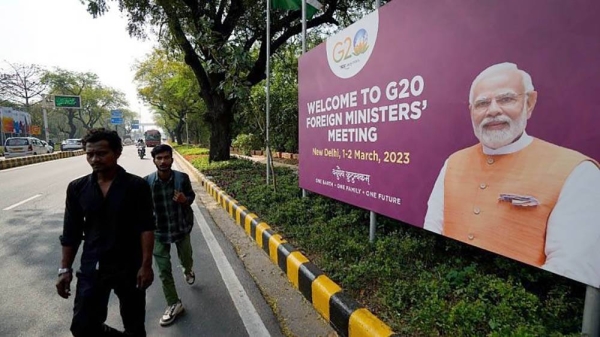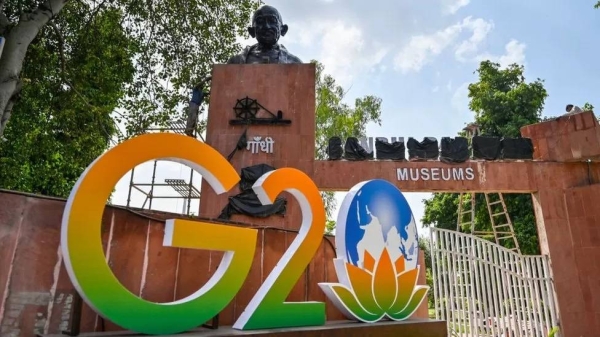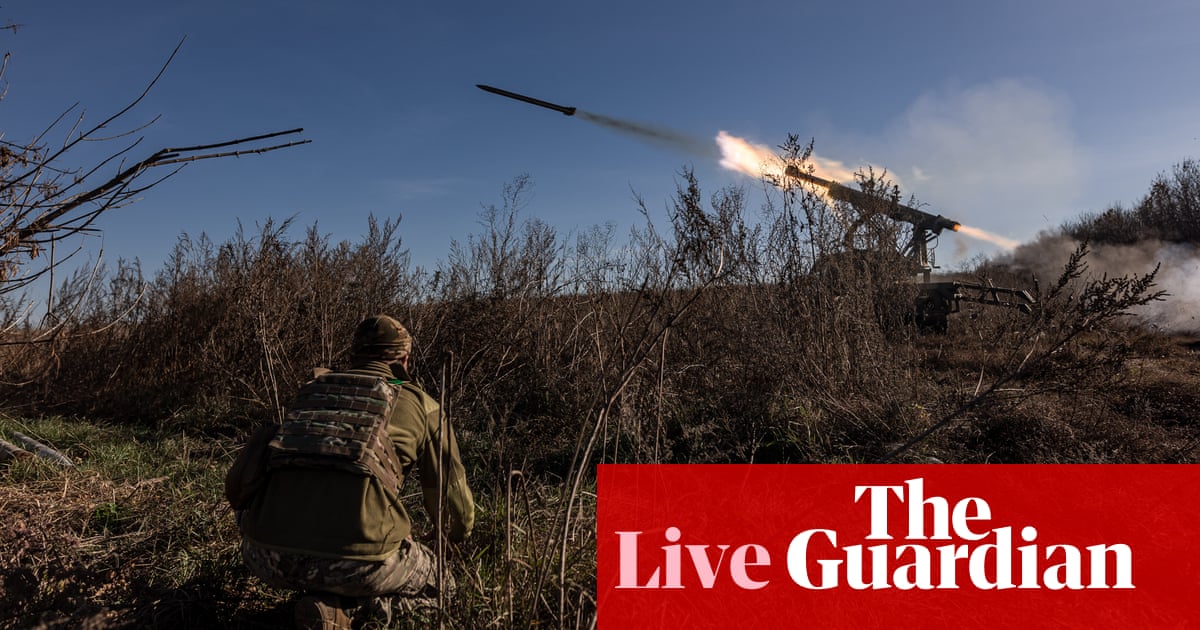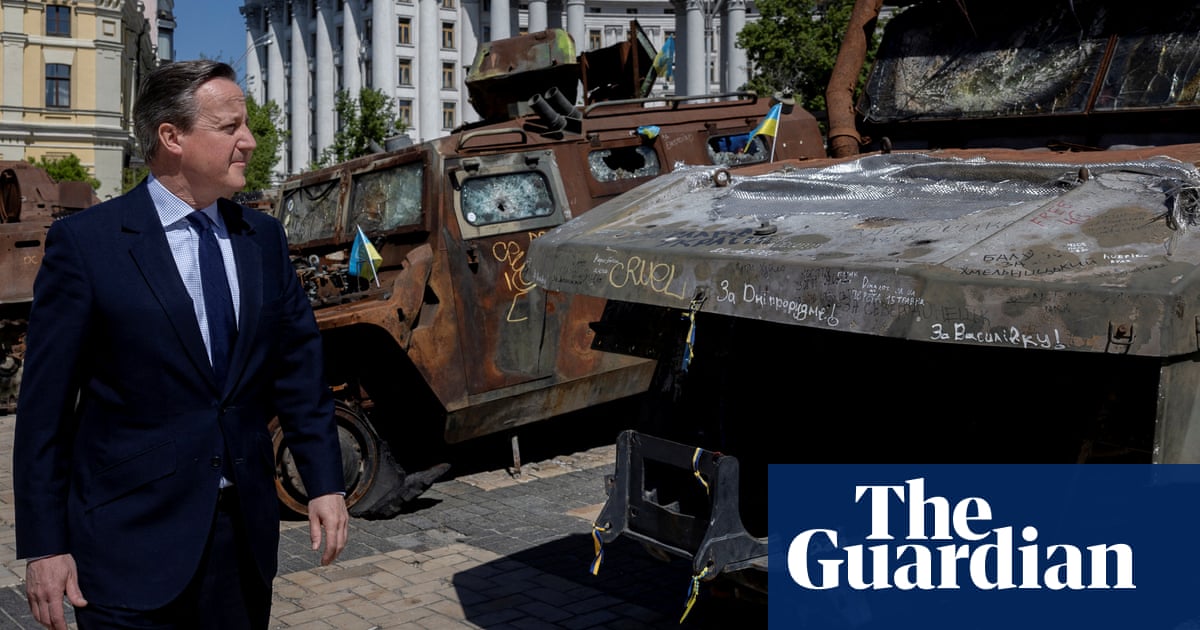
This year’s G20 is being held in Indonesia, but it is developments some 9,500 km away in Ukraine that have been most influential in shaping the multilateral body’s 2022 agenda.
This Friday and Saturday, G20 finance ministers will meet in Bali after their foreign minister counterparts convened last week. Tensions over Moscow’s invasion boiled over in that session, with Russian Foreign Minister Sergey Lavrov receiving a frosty welcome when he arrived for his first major trip abroad since the Ukraine conflict began. He also walked out of meetings at least twice, after criticism of Moscow’s war, and none of the customary group pictures of the so-called G20 family were taken. Moreover, G7 nation diplomats reportedly skipped the main dinner session as Lavrov was going to attend.
With the longevity and outcome of the Ukraine crisis unclear, this year’s G20 events have the potential to become the most important since the 2009 meeting in London, which was held during the storm of the global financial crisis. While Indonesia is one of the club’s least-prominent states, President Joko Widodo is determined to try to make his mark and is engaging in extensive shuttle diplomacy, including a trip to Moscow to see President Vladimir Putin early this month.
According to Widodo, Putin will not attend November’s leadership summit in person. However, all the other member states’ presidents and prime ministers are expected to do so. Collectively, the G20 powers account for some 90 percent of global gross domestic product, 80 percent of world trade and about 66 percent of the global population.
At this weekend’s meeting of finance ministers, perhaps the hottest topic will be the outlook for the world economy amid growing concerns that significant chunks of the globe may be heading for recession. In part, this is because of surging energy prices, which have hit the European continent particularly hard.
Following Russia’s invasion of Ukraine, energy security has become as important as net-zero targets for some European governments and this may be the case well beyond this year. This is because there is a real danger of energy blackouts in Europe, so securing alternative supplies to those of Russia is a critical mission for EU leaders.
Energy security has become as important as net-zero targets for some European governments.
Andrew Hammond
The World Bank has forecast that energy prices will remain high for a long time; rising more than 50 percent in 2022 and remaining historically high through to at least the end of 2024. Some private forecasters have similar assumptions. Fitch Solutions last month predicted that Brent may only pull back to $85 to $90 per barrel by 2024-25.
In this context, the long-term energy transition will probably be set back not just in 2022, but potentially into the medium term. To be sure, investment in oil, gas, coal and low-carbon fuel supply is, in aggregate, almost 30 percent below what it was when the Paris climate deal was signed in 2015.
However, while the International Energy Agency forecasts that global energy investment will increase by 8 percent in 2022, with the rise mainly via clean energy in renewables and grids, this is far from enough to tackle today’s energy crisis and hit the Paris climate targets. There is little sign of a transformative investment change happening for the foreseeable future.
All of this highlights why this year’s event could be one of the most consequential G20s in more than a decade. Back in London in 2009, the multilateral forum, with then-UK Prime Minister Gordon Brown in the chair, coordinated an approximately $1 trillion stimulus package to bolster the global economy at a time of significant trouble.
Widodo is well aware that, since then, while the G20 is widely seen to have seized the mantle from the G7 as the premier forum for international economic cooperation and global governance, it has so far failed to realize the full scale of the ambition some have thrust upon it. In part, this is because it has no formal mechanisms to ensure enforcement of the agreements made by world leaders.
Moreover, there remain concerns among states outside the club about its legitimacy and composition, given it was originally selected in the late 1990s by the US and its G7 colleagues. While states were nominally selected according to criteria such as population and GDP, criticism has been made of the omission of countries such as Nigeria, sometimes called the “giant of Africa,” which has three times South Africa’s population.
However, as important as this issue is, how much the Indonesian presidency will be able to deliver on this summit’s potential will depend much more on whether post-Ukraine invasion divisions between the West and Russia ameliorate or worsen in the weeks ahead.
• Andrew Hammond is an Associate at LSE IDEAS at the London School of Economics.
Disclaimer: Views expressed by writers in this section are their own and do not necessarily reflect Arab News" point of view












